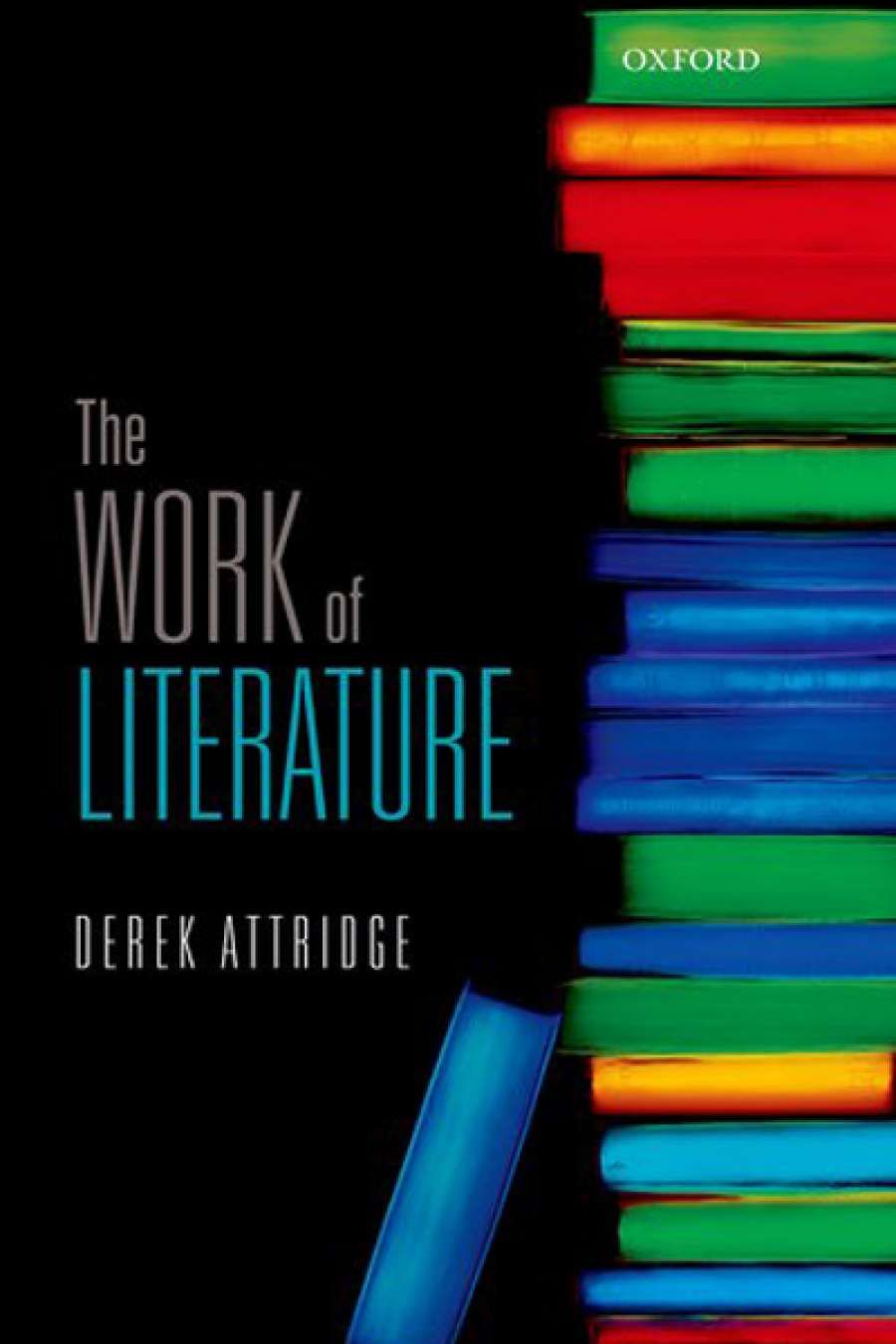
- Free Article: No
- Contents Category: Literary Studies
- Custom Article Title: Paul Giles reviews 'The Work of Literature' by Derek Attridge
- Book 1 Title: The Work of Literature
- Book 1 Biblio: Oxford University Press, $71.95 hb, 335 pp, 9780198733195
Attridge has written in the past on punning in James Joyce, and this book's title involves a pun between the work (opus) of literature and literature itself as a form of work, or professional labour. To some extent, the latter assumption derives from the commitment of earlier critics such as F.R. Leavis (whom Attridge cites with approbation) to read literature in an ethically serious manner, but this notion of literature as hard work is ratcheted up here to a more austere level, with Attridge invoking Emmanuel Levinas's philosophical openness to otherness in his insistence on the need for 'alert and committed reading'. Conversely, he expresses impatience with Franco Moretti's emphasis on the 'sociology of literature' and with the more commercial pressures of popular fiction, saying that 'such works rank lower in the general estimation of art' despite 'bringing pleasure to many'.
Attridge's view of literary merit is always thought-provoking and interesting, but it seems difficult to regard it as a universal panacea. There are many writers, the American poet John Ashbery, for example, whose texts shuttle in sophisticated ways between intensity and diffuseness, with Ashbery remarking in one of his interviews that he writes 'best when there are a lot of distractions around just because that seems to be the situation of life. I always answer the telephone when I'm writing, and it very often helps me with what I happen to be writing.' It is true that Attridge's 'alert and committed reading' might tease out new understandings of how Ashbery's heterogeneous aesthetics operate, but such an alert and committed reading is not necessarily what the poetry of Ashbery (or Walt Whitman, or Edmund Spenser) invites or needs.
'Attridge is ... relatively uninterested in literary history, which he sees as being concerned merely to describe ''general trends'' without troubling to engage properly with individual works'
There is something like a Dutch Calvinist side to Attridge's intense seriousness, and it is no surprise that he is not unsympathetic in principle towards the idea of soft censorship, commenting on how 'an ethical attitude ... might lead to certain works not being recommended to acquaintances or children'. But such an approach does seem somewhat strait-laced when set against the preferences of a younger American critic such as Sianne Ngai, for whom the dominant aesthetic categories of our digital age are 'zany', 'cute', and 'interesting'. Attridge's principled emphasis on a work's 'singularity' also makes him hostile in principle to the great critical systematisers – Erich Auerbach, Northrop Frye, Fredric Jameson – whose profound insights lay in their capacity to align any given work with generic, historical, or political prototypes. Indeed, Attridge's dictum that critical methods should avoid being too intrusive – 'Any excess of power will only serve to distort what is supposedly being described' – testifies to the intellectual primacy he accords to the discrete textual object rather than to any architectonic structure within which it might be inscribed.
Much of Attridge's criticism over recent years has been influenced by post-structuralism, and the work of Jacques Derrida features prominently in his bibliography. However, The Work of Literature also reveals the author's debt to more traditional thinkers such as the American philosopher John Dewey, with Attridge acknowledging how there is much in his earlier work 'that has affinities with Deweyian pragmatism'. Among Dewey's chief characteristics was a willingness to encounter the world without imposing upon it prior templates, and the same could be said of Attridge in the way he confronts the realm of literature and critical theory with a rigorous but inquiring spirit, one always willing to expose itself to self-contradiction in the interests of seeking further illumination.


Comments powered by CComment